Installation
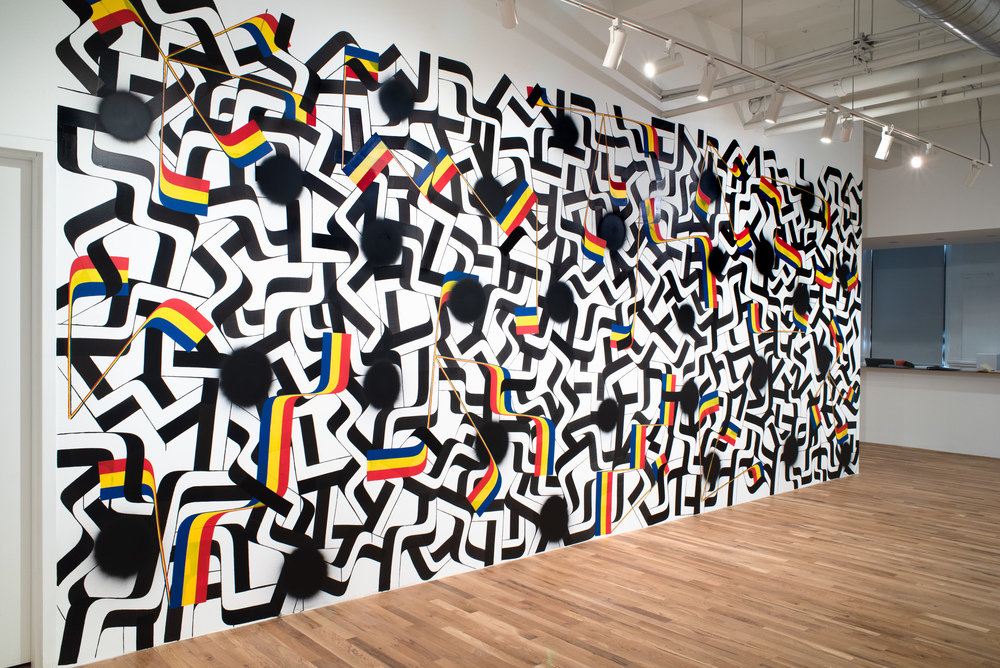
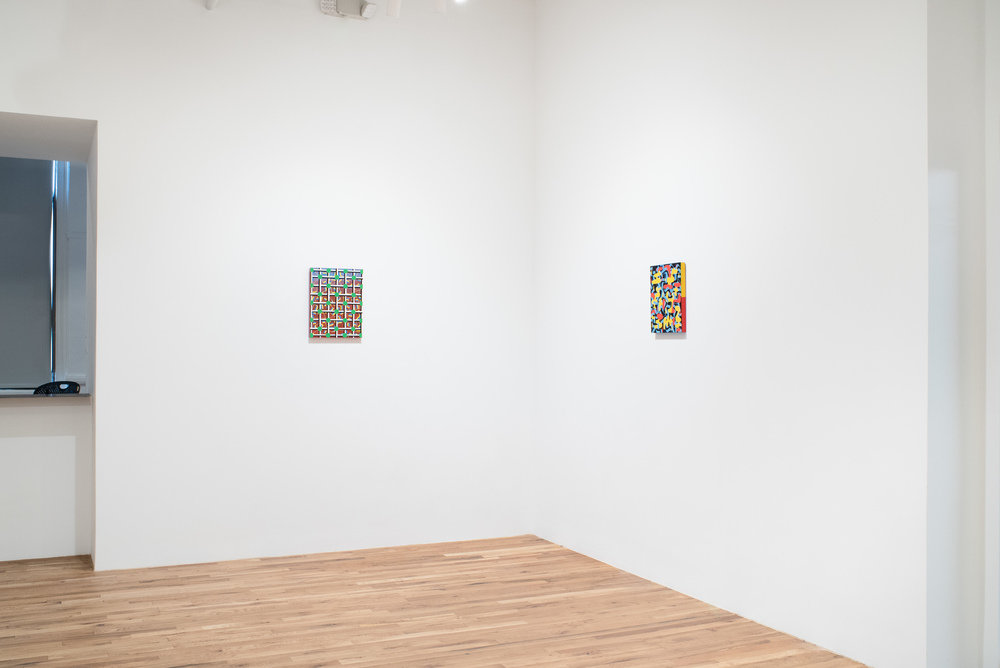
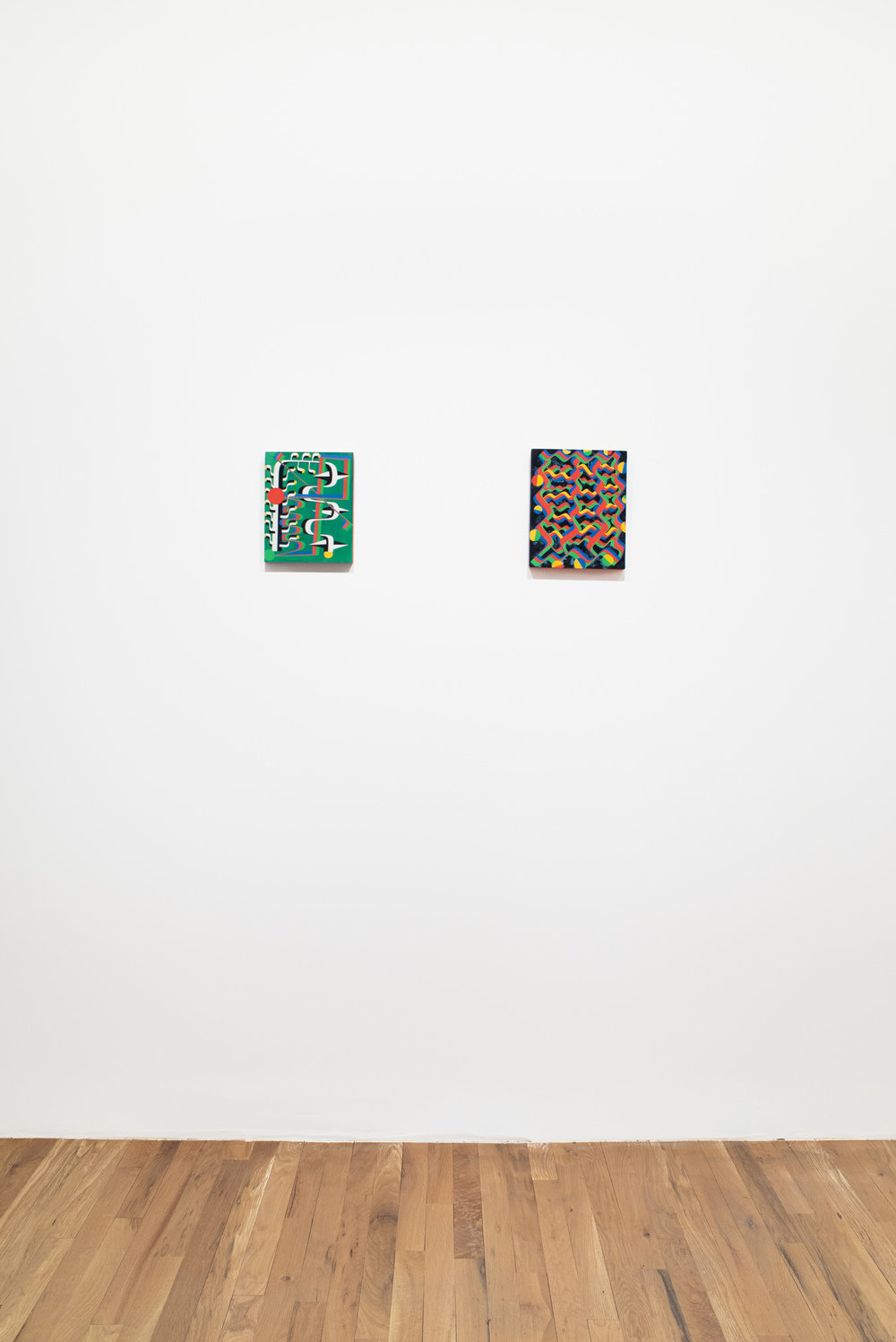
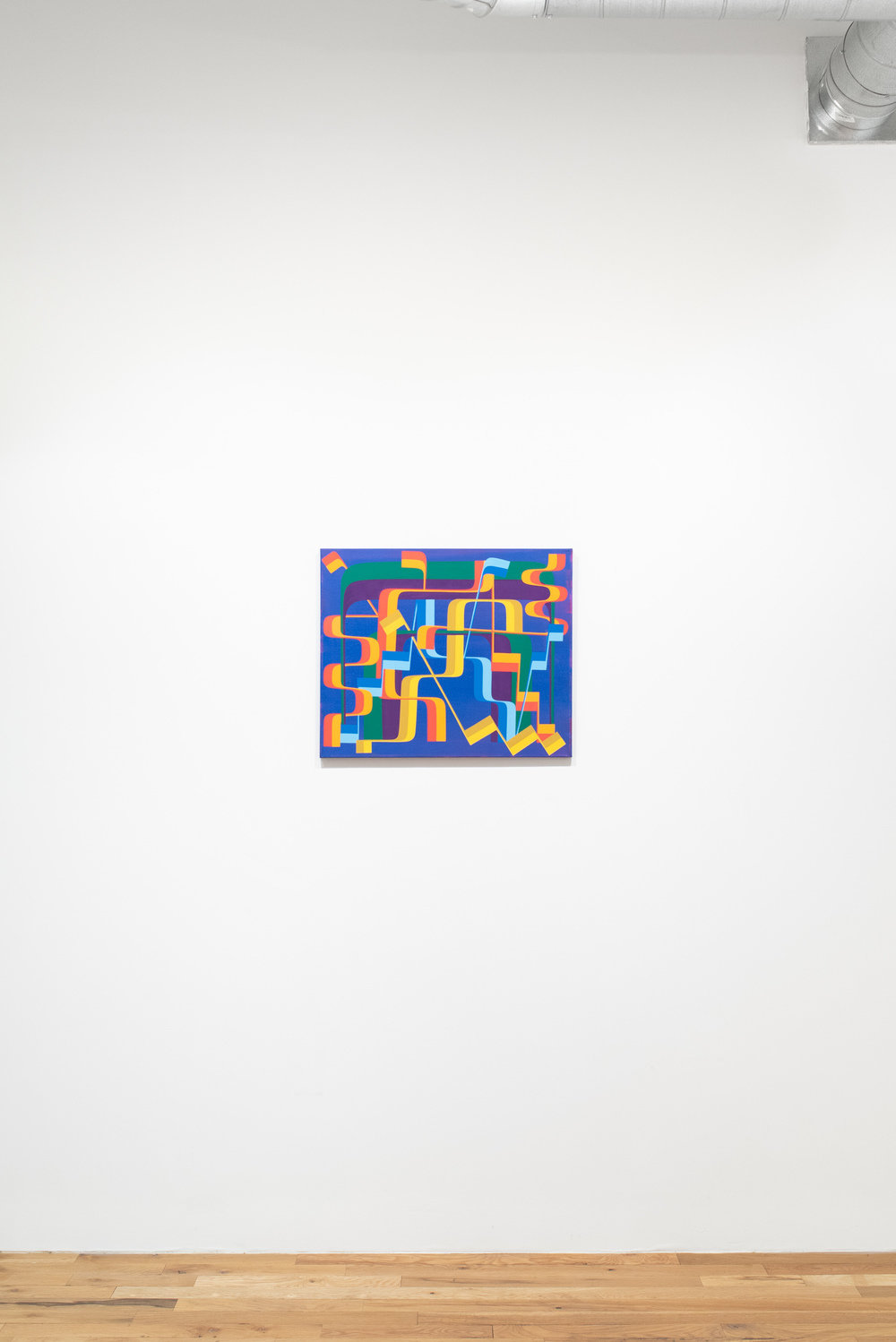
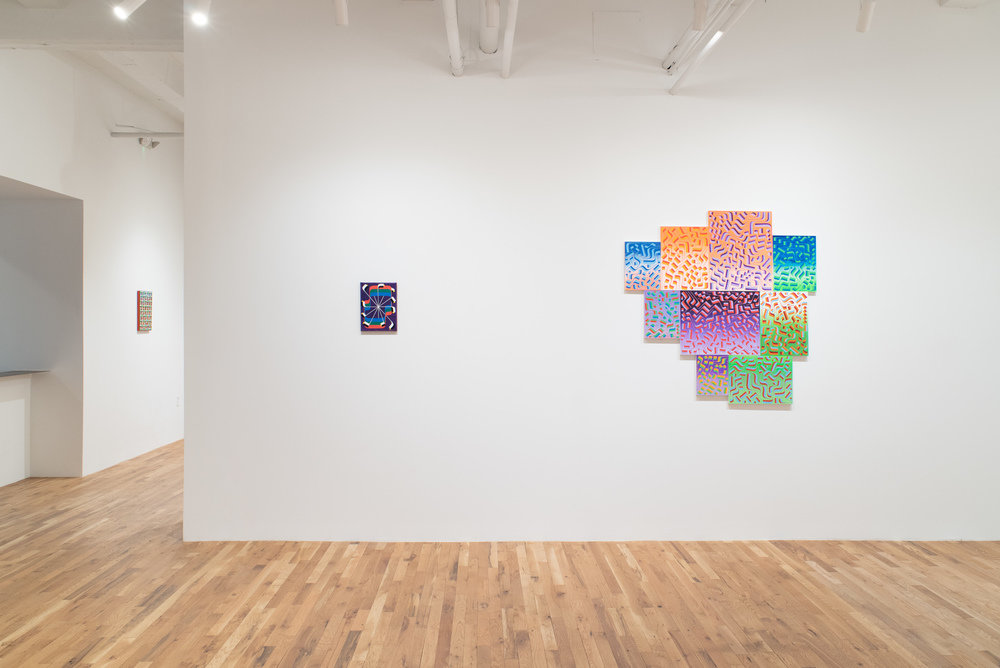
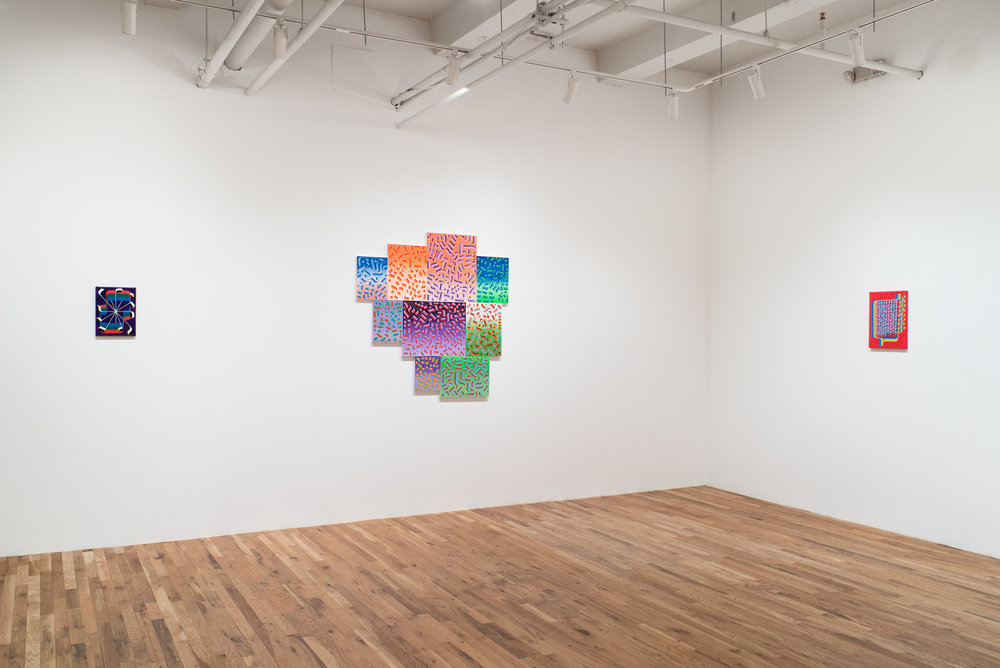
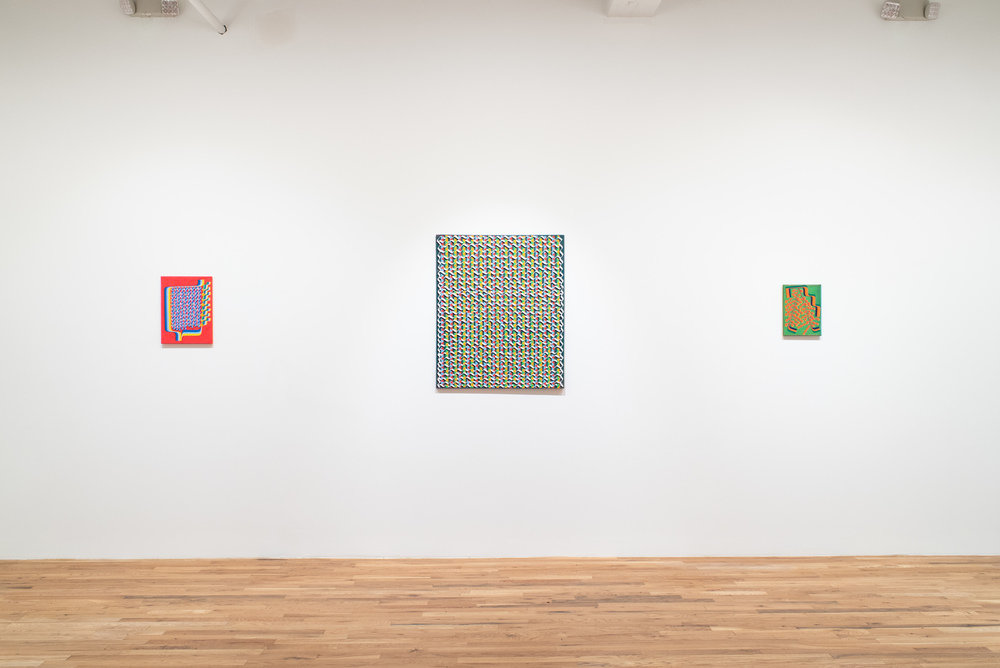
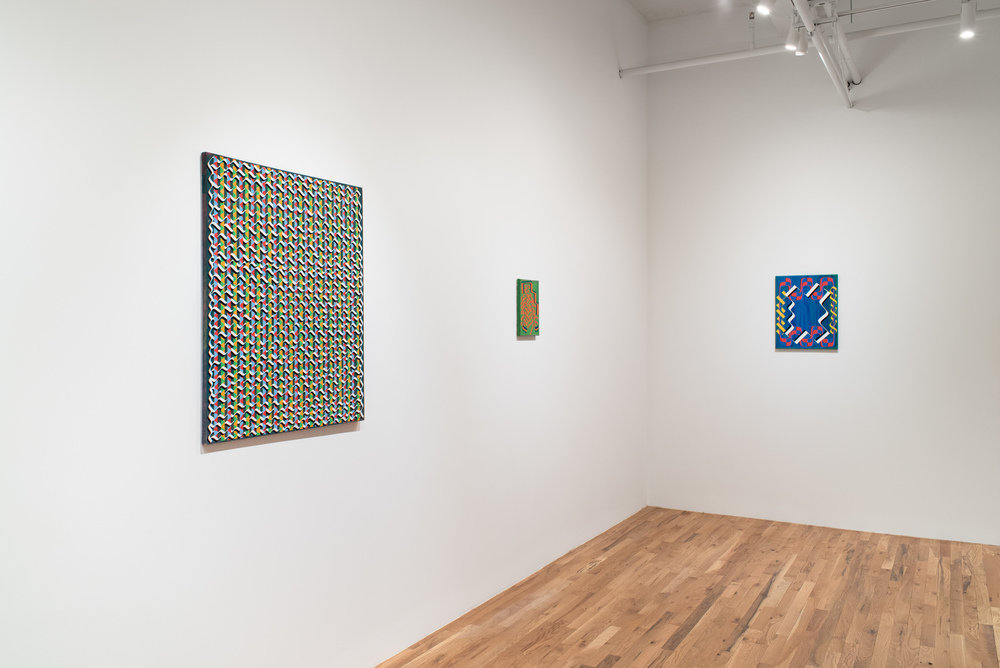
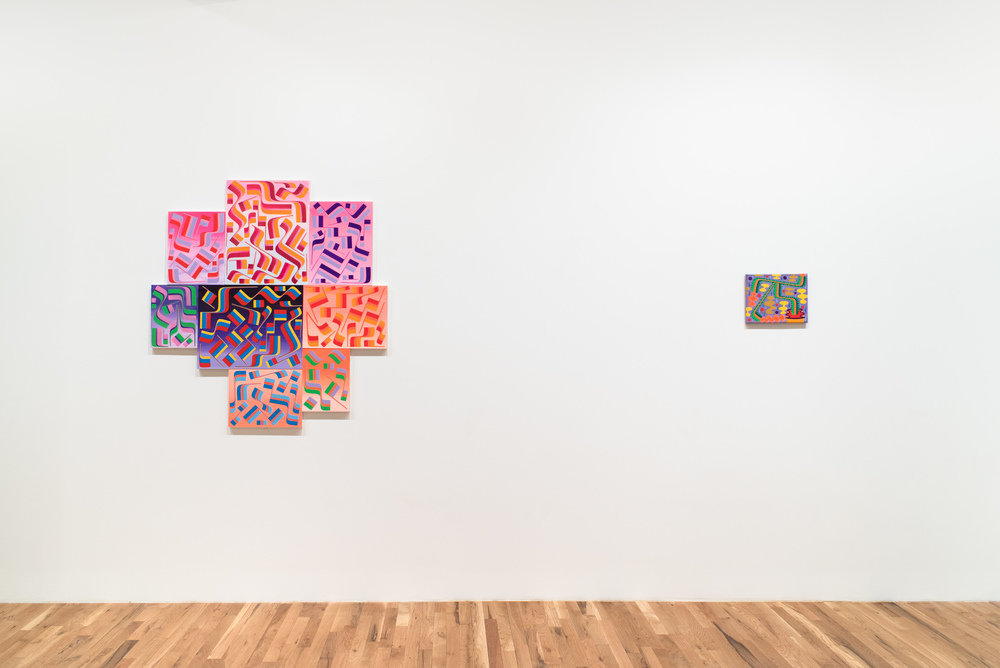
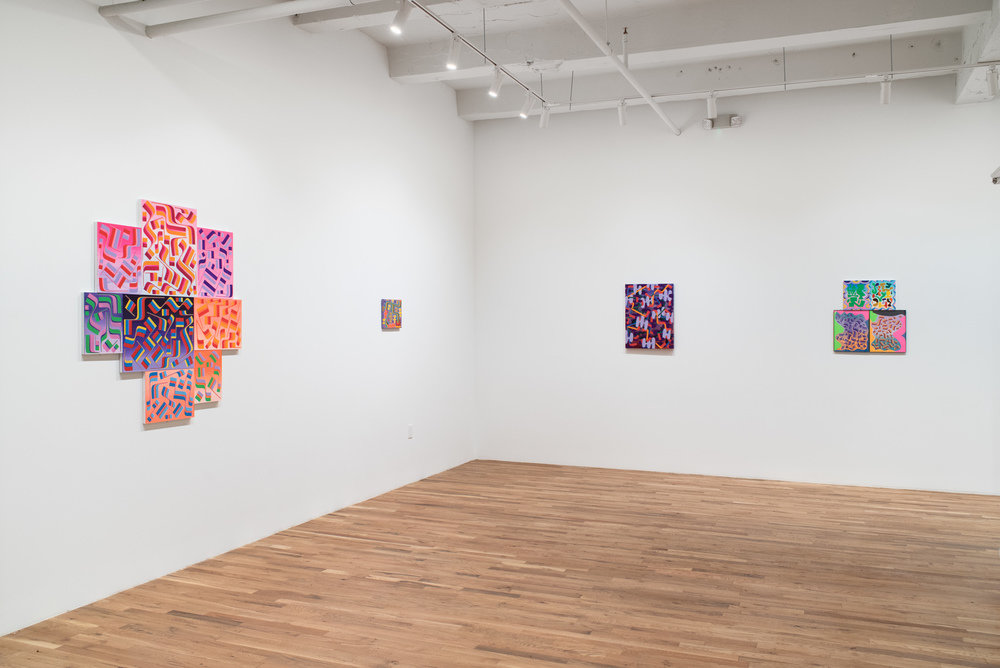
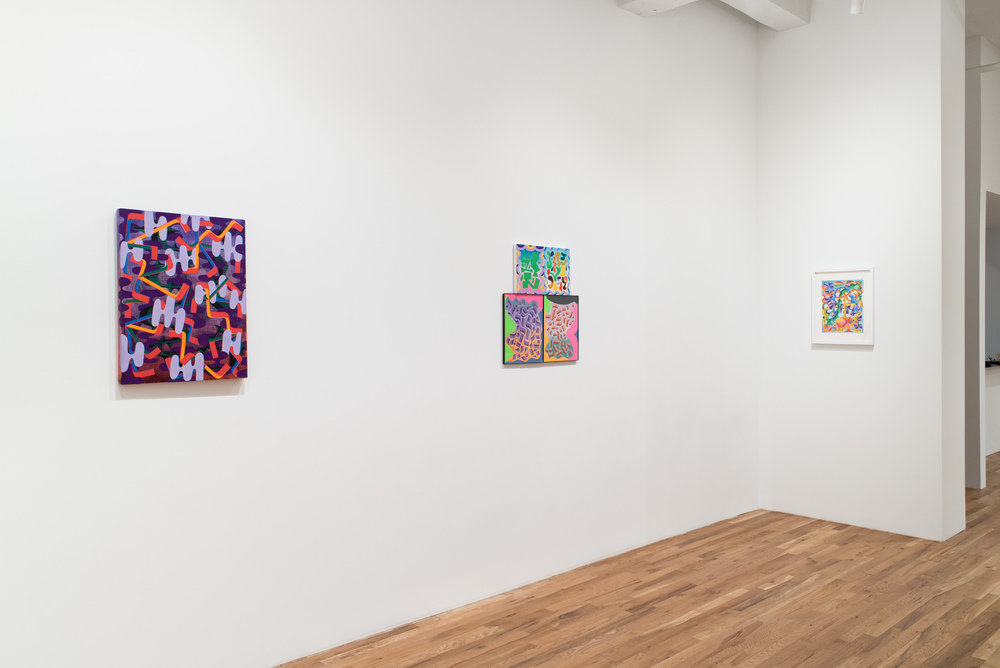
Mar 26 — May 28, 2021
Featuring work by: Isaac Tin Wei Lin
Fleisher/Ollman is proud to present a solo exhibition with Isaac Tin Wei Lin. In Liminality, Lin shows works on canvas (a new direction for the artist), multiple panel cluster paintings, and a mural painted directly on a gallery wall. Lin paints calligraphic, letter-like forms that interact with a range of abstract shapes like biomorphs, lattices, and sign waves. Painting on a range of surfaces and supports, he is just as comfortable addressing a twelve-by-nine inch canvas as he is engaging the side of a thirteen-story building. Lin’s dense calligraphy—a kind of graffiti in which comprehensible lettering gives way to pure form—evoke patterns and structures found in nature, on both the macro and micro level. His abstraction brings to mind single cell organisms, entangling kudzu vines and other plants, DNA helices, and pulsating constellations all rendered in effervescing colors. While Lin’s practice is distinctly his own, his work nonetheless resonates with the history of 20th century abstraction by artists such as Juan Miro, Wassily Kandinsky, Arshile Gorky, Adolph Gottlieb, and Bradley Walker Tomlin.
The exuberant joy of Lin’s work counterbalances the underlying fear and alienation that has become increasingly pronounced in the artist’s life as a result of both pandemic lockdown isolation and growing violence towards Asian Americans during our collective crisis. He finds himself in a moment in which fear of contagion intersects with white supremacy. According to the artist, in the context of our times, the calligraphy at the heart of his practice can be read as “symbolic expressions of psychological states and the insecurity of fitting in, as my own form of camouflage.” Lin’s collaboration on masks and clothing with his partner, the designer, Melissa Choi, explores this idea of camouflage “whereby my murals and painting installations function as the environment for someone wearing CHOI LIN to be hidden.” Thus, Lin demonstrates how abstraction, often seen as a site of formal experiment devoid of socio-political concerns, can be a place of identity exploration and formation. Lin sees himself inhabiting a liminal space, or third culture, in which Asian Americans do not fully identify with Asia or America, but find themselves living in a negotiated space in-between.
Isaac Tin Wei Lin (b. 1976, lives and works in Philadelphia, PA) has had solo exhibitions at the Asian Arts Initiative, the Print Center, Fleisher/Ollman, and Gallery 543 Urban Outfitters Headquarters (all in Philadelphia); Park Life, Queen's Nails Annex, Woodward Flats, RVCA, and Needles and Pens (all in San Francisco, CA); and Lamp Harajuku, Tokyo, Japan. Lin participated with the DFW collective in Arts Le Havre, 2012 Contemporary Art Biennial, France. He has been featured in group exhibitions at the Philadelphia Museum of Art, Institute of Contemporary Art, Fleisher/Ollman, Painted Bride Arts Center, and the Philadelphia Museum of Jewish Art (all in Philadelphia); the Hole, Bravin Lee, and Franklin Parrasch (all in New York); MASS Gallery, Austin, TX; Elizabeth Leach Gallery, Portland, OR; Hyde Park Art Center, Chicago; Yerba Buena Center for the Arts and Needles and Pens (both in San Francisco); Somerset House, London, UK; and Scooters for Peace, Tokyo, among others. Lin has been commissioned to paint several large-scale murals, including three through Mural Arts Philadelphia; a multi-story stairway mural for Facebook's headquarters in San Francisco; and a thirteen-story mural in Heerlen, the Netherlands, commissioned by Stichting Street Art Foundation. His work is in the collection of the Philadelphia Museum of Art, Berkeley Art Museum, and the Free Library of Philadelphia.
A percentage of the gallery’s profits for this exhibition will be donated to Stop AAPI Hate, https://stopaapihate.org, which tracks and responds to incidents of hate, violence, harassment, discrimination, shunning, and child bullying against Asian Americans and Pacific Islanders in the United States. The organization acknowledges that in order to effectively address anti-Asian racism we must work to end all forms of structural racism leveled at Black, Indigenous, and other communities of color.










